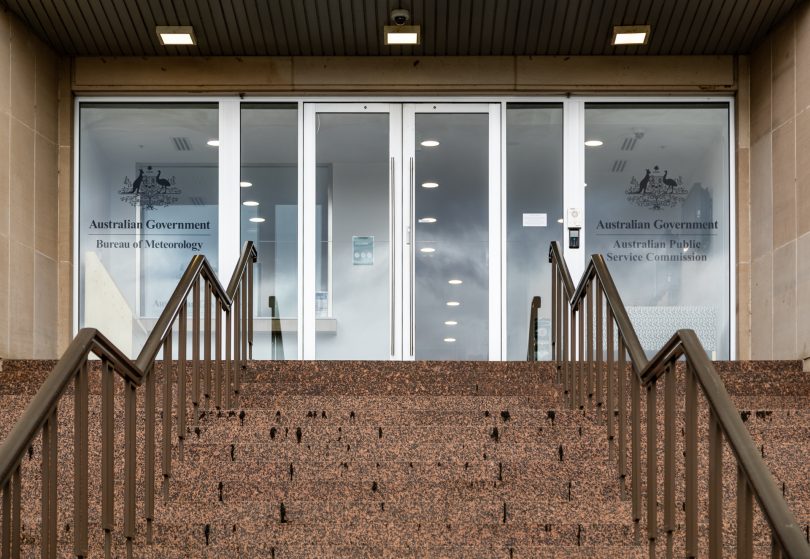
The Australian Public Service Commission has referred 16 past and present APS employees to a code of conduct process over Robodebt. Photo: Michelle Kroll.
A total of 16 current and former APS employees have been referred to Australian Public Service Commissioner Gordon de Brouwer for code of conduct scrutiny over the illegal Robodebt scheme.
While the Royal Commission into the scheme only referred (in the sealed section of its report) current APS employees to the commissioner for possible sanction, the APSC has also referred past serving public servants and even former agency heads to its centralised code of conduct mechanism.
An APSC statement notes that former employees were included to ensure equitable treatment.
Former employees were referred by their most recent agency heads, while former agency heads included in the list were referred by Public Service Minister Katy Gallagher following advice from Department of Prime Minister and Cabinet secretary Glyn Davis.
“All referrals for investigation of potential breaches of the APS Code of Conduct have now been made and the Code of Conduct Taskforce in APSC has notified all referred individuals,” the statement says.
“An assessment will now be undertaken to establish in each case whether there are sufficient grounds to commence an investigation into suspected breach(es) of the APS Code of Conduct.
“The APSC will not provide details on individual cases or any further breakdown.”
Agency heads have also made decisions regarding the employment arrangements for current APS employees who have been referred to the code of conduct process.
APS Code of Conduct inquiries are independent investigations and each referral will be considered in accordance with the Public Service Act 1999 and the Public Service Regulations 2023.
The APSC says findings will be made on the balance of probabilities.
“Individuals who become the subject of a formal investigation will have an opportunity to respond to any allegations of suspected breach(es) of the APS Code of Conduct and provide their own submissions either in writing, by interview, or both,” it says.
“Timeframes for considering matters will depend on availability, length of submissions and any extensions that may be requested.”
Retired former APS commissioner Stephen Sedgwick was recently appointed as an independent reviewer to inquire into possible breaches of the APS Code of Conduct in the Robodebt matter.
Department of Health deputy secretary Penny Shakespeare has now also been appointed as a supplementary reviewer to make inquiries into the conduct of former agency heads.
Should any current APS employees be found to have breached the APS Code of Conduct, an independent sanctions adviser will be appointed, as required, to make recommendations to the relevant agency heads.
While the identities of current and former APS employees have not been revealed at this stage, former Human Services secretary Kathryn Campbell – regarded as the boss of Robodebt – has already resigned from her $900,000-a-year job as the government’s special AUKUS adviser.
In addition to the APSC receiving the Royal Commission’s sealed report with its recommendations for investigation, the Australian Federal Police and the National Anti Corruption Commission were also sent the report with recommendations for criminal investigations.
The APSC has committed to provide updates on the progress of the code of conduct process, but it has a legal obligation to not to disclose details contained in the sealed section of the Royal Commission’s report at this stage.
The Federal Government is taking legal advice over when and if the contents of the sealed section can be revealed.
The Robodedt automated debt recovery scheme was piloted in 2015 and fully rolled out between 2016 and 2019 by the Department of Human Services and its successor, Services Australia, with more than 470,000 false debts issued.
It caused extensive grief and trauma, with some recipients reported to have taken their own lives over the debts.
It was officially scrapped in 2020, with the promise of paid debts being refunded in full.
It cost the Commonwealth $1.8 billion in settlement after the Federal Court ruled it a “massive failure in public administration”.
Following Labor’s federal election win last year, Prime Minister Anthony Albanese wiped any debts still under review and established the Royal Commission.
Original Article published by Chris Johnson on Riotact.









